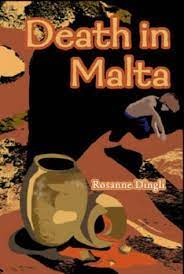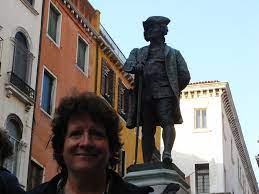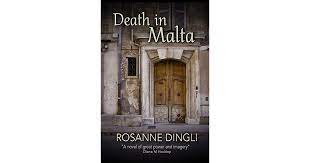Death in Malta (2000) by Rosanne Dingli
GoodReads meta-data is 304 pages, rated 3.88 by 98 litizens.
Genre: suspense.
Verdict: Nifty.

Set-up: Second-time Australian genre author goes to Malta to get away from it all and finish, well, start that second book, ostensibly planning to stay with his Maltese in-laws, but once there he has no wish to find the relatives of his seven-year estranged wife. In the Mediterranean heat and glare, he heads for hills to a remote village where he finds a farm house to rent that is dirt cheap but with most mod cons. Excellent.
The locals treat him with a friendly respect, some of whom have relatives in Australia, but he is nonetheless an object of curiosity for them. The more so when they realise he is living in that house. (Move over Stephen King….) There is a reason why no else wants to live in it.
He begins to piece together what did and what might have happened years ago, and uses it as the plot for the second novel, but as he does so…. Well, is it imagination or reality? A retired local doctor trembles whenever asked about the previous owners of the house. Protagonist hears stories of a lost boy, and sets out to put it altogether on paper, if not in flesh.
Much to his own surprise he attracts a local squeeze and things seem to be going right. He pounds the keyboard most nights as the story of the lost boy takes shape. Squeeze enthusiastically assists in tracking down details while Doctor reluctantly pitches in. Even the local plumber adds some intel about how the drain pipes in the village work.
There is a resolution and a happy ending despite all the foreboding as he excavates drains, pipes, memories, cellars, wells, and much of the land of the house looking for clues, and irritates and alienates the neighbours by persisting in nosing around. It gets worse before it gets better.
Writer’s integration into village life is well told, and the locale is a major feature. I chose it for that locale as change from the run of Nordic reading I have been doing. Plus who does not like Maltesers. He finds villagers speak three kinds of English, depending on age. The oldest speak a slangy tar speech from the days when they learned from British sailors. Then the post-war generation speaks a stilted school-book English, correct but devoid of idioms. Finally, the youngsters have a Euro-English derived from MTV and the like.

The author has several other titles that seem to be similar.

